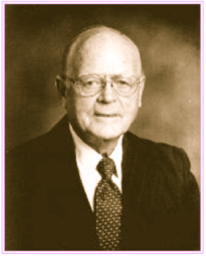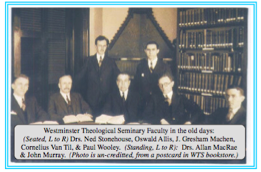

Max Lathrop, B.D., Th.M., D.D.

"This event," Dr. Keneth Pike has written of the WBT/SIL's 1936 incorporation (with Lathrop and the other men as the first Exectuve Committee), "was one of the most momentous decisions of modern missions." Together with Pike, Townsend, and the other first translators who soon grew into an advancing and unstoppable spiritual army, the entire world would come to be encompassed and transformed by the impact of the Word of God being spoken, for the first time, in the native tongues of most of the known languages of the earth.

Nearly 7,000 feet above sea-level, the ethereal Lake Patzcuaro is the home of the Purepeche-speaking native marsh dwellers. Here, among the once feared warriors who almost alone among all the tribes of Mexico were able to defeat the dreaded Aztecs, Max first dedicated himself to the writing of an alphabet that would introduce them to the Prince of Peace. This inaugural work was soon followed by a Tarascan language primer and then, over the course of years, successive books of the New Testament, Hymns and Biblical studies. A major enterprise, as it involved running a printing press, along with his many efforts to introduce new manual industries to the impoverished peoples of the region, his cottage by the lake became a beacon of hope much visited by missionaries, government dignitaries, tourists and of course, the always present native friends and spiritual brethren, who called him “Tata Max” (Father Max).
There too, among the laughter and joy of Christian service, came the sorrow that invariably accompanies those who give themselves to a greater cause: his young son slipped unnoticed one day under the chilly waters of Lake Patzcuaro — a lake bright with the famous "butterfly fishing nets" pictured in geographic magazines around the world, and a silvery highway which brought the Tarascan families on reed boats to the Lathrop's doorstep to hear of Him who is Victor over the human sadness, impoverishment and death with which they, and now brother Max, were all-too acquainted.
Max seldom spoke of this great tragedy, but no conversation ever ended without his having asked the all-important question driving his life and ministry: "What have you done, today, to show forth God's glory?" A self-identified "Doxist," Max had little time for denominations and their squabbles; but he did, in another crowning ministry of his storied life, help the budding nucleus of church and theological reformers in the Rio Grande Valley establish, in the mid 80's, the Reformed Church of the Valley, of which he was a proud member, and shortly thereafter, the first studies leading to ETS, with eager Hispanic students gathered around Dr. De Jong’s kitchen table.
A fixture at the Wycliffe banquets in South Texas, most people looked upon Max as a "walking history," as one student was to call him! And while the churches in North America which he so diligently represented seemed content to let this living "history" slip by during this period of his life, in God's providence the Edinburg Seminary, as well as other important institutions such as Westminster Biblical Missions, continued to promote his vision for God’s “doxa” in all of life, north and south of the Rio Grande Valley.
Max cannot be replaced, but his work — at the Seminary, among the Tarascan peoples — has continued, and his labors continue to bear fruit with each young person, here and on the mission field, who picks up God’s word and preaches the Good News to those near and far. Asked once at a Wycliffe banquet to identify himself, Dr. Lathrop's answer captured everyone’s heart: "I am a simple man, praising God in simple ways." He went to be with his Lord on March 1, 2004, but left a lasting legacy each student at ETS may be inspired by, and find a heritage of excellence and singular service in pursuit of the honor and glory of their Savior and Lord, Jesus Christ.
"I have made the Lord God my refuge, that I may tell
of all thy works." -- Psalm 73:28